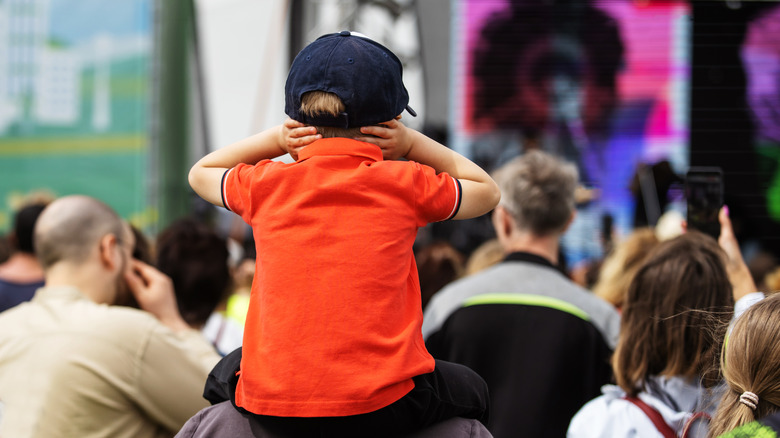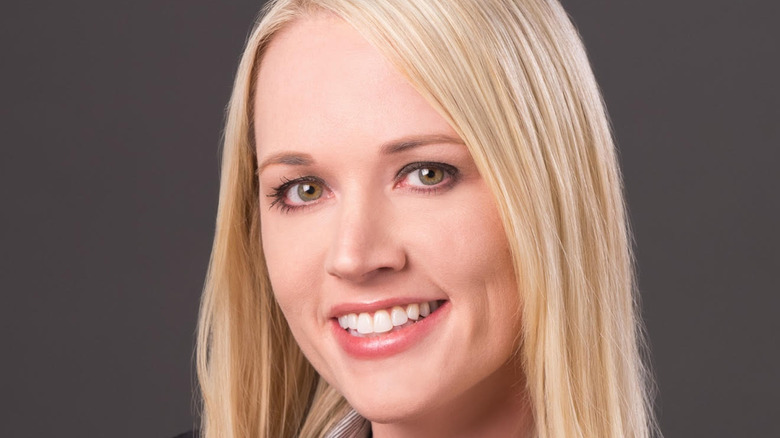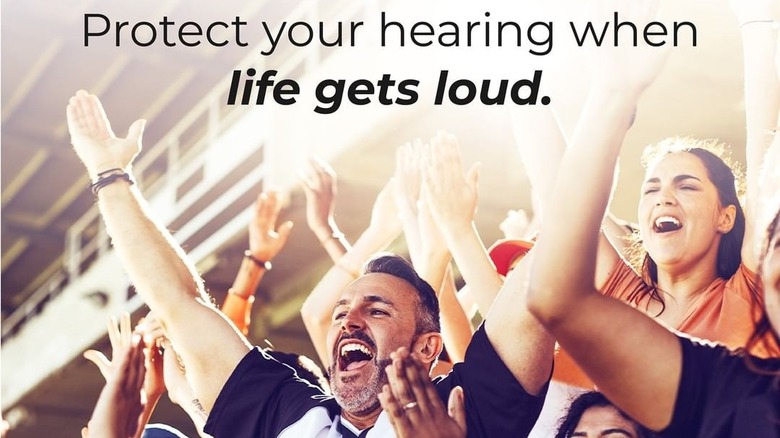Audiologist Dr. Hope Lanter On Minimizing Risks Of Hearing Damage During Summer - Exclusive Interview
The long, hot days of summer bring some of the best activities of the year — outdoor concerts, boating, fairs, and of course, fireworks. Though these entertainments bring delight, they also bring a hidden danger — hearing damage. Believe it or not, all of these activities — even boating — are loud enough to cause hearing impairment depending on how long you're exposed to the sounds. Both concerts and fireworks displays are loud enough to cause hearing damage in a short period of time, while activities like boating can cause hearing damage if you're doing them for an extended period of time.
Luckily, there are some easy actions you can take to mitigate the harm and still participate in the summer activities you love. In an exclusive interview, Health Digest connected with Audiologist and Director of Partner Success at hear.com Dr. Hope Lanter to discuss her top tips for protecting your ears and preserving your hearing this summer.
How summer activities can damage your hearing
How common is hearing damage from extended exposure to loud sounds?
According to a study conducted by the CDC, as many as 40 million adults have hearing loss that shows indications of damage due to noise.
How loud do sounds need to be to cause hearing damage?
A general rule is that a sound that averages 85 dB (decibels) or higher can cause damage if [you're] exposed for more than 8 hours. This may sound like loud sounds aren't that impactful. However, the amount of time decreases by half for every 5 dB increase. Therefore, at 90 dB, exposure is only 4 hours maximum, 95 dB is 2 hours maximum — by the time you hit 120 dB, significant damage can occur in less than 4 minutes!
How can summer events and activities like fireworks, outdoor concerts, and speedboating impact hearing?
Many concerts can easily exceed 100 dB, so it doesn't take long before this activity could cause damage to your hearing. While fireworks can exceed 125 dB, the proximity to the blast is key to whether this would create an impact to hearing. In general, if you need to raise your voice to talk to someone near you during an activity, it is most likely loud enough to potentially cause hearing loss. According to Boating Magazine, most speedboats produce noise levels of 80-90 dB. You must consider how long you are exposed to these noise levels, and when in doubt, protect your hearing with earplugs.
How to protect your ears this summer
How can someone tell if their hearing has been damaged?
Immediately after you are exposed to noise, if you experience muffled or reduced hearing ability and in some cases, ringing in the ears, this is called a temporary threshold shift. In these cases, hearing will generally resolve itself within a few hours and up to a couple of days. However, when this occurs, damage to the hearing nerve has occurred even when hearing seems to be back to normal.
The more wear and tear we expose our ears to, the more likely our ears will have impacts [in the] long term and irreversible hearing loss will be present. Every person can benefit from having a baseline hearing test when they have not been exposed to any loud noises so that they can compare their hearing ability over time.
What can people do to protect themselves from hearing loss while having summer fun?
Earplugs, [limiting] exposure time, [and using a] dB reader. Wearing earplugs can be similar to wearing sunscreen, meaning that we all know that wearing it daily is best, but sometimes we may forget. Even applying once per day is better than not at all. The amount of time spent exposed to loud noise is key, so even if you wear earplugs for a portion of the time, it is better than not at all. For example, maybe you aren't wearing earplugs while using your blender, but be sure to grab them before you head to that concert this weekend.
In addition, downloading a dB reader is a good way to get an idea of how loud daily sounds around you are. Some sounds may be louder than you think, and learning how loud the sounds you are exposed to can help you make better choices on when to wear earplugs or limit the time you are participating in certain activities.
Dr. Hope Lanter has over twenty years of experience as an audiologist working directly with patients and helping them find the best hearing loss treatments that fit their individual needs. She currently sits as the Director of Partner Success and Lead Audiologist with hear.com.
This interview was edited for clarity.



